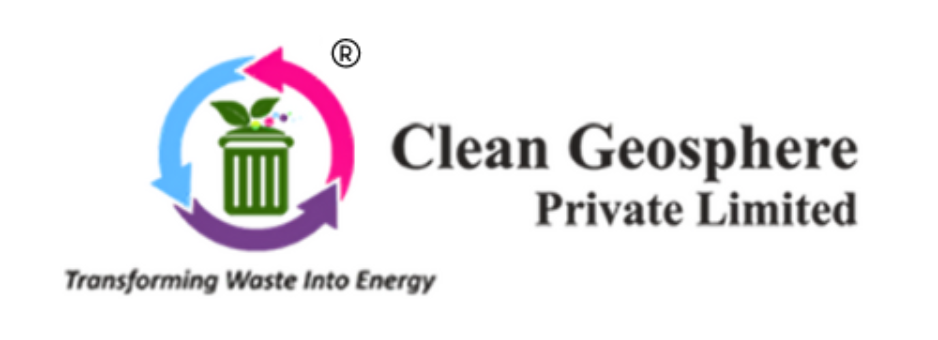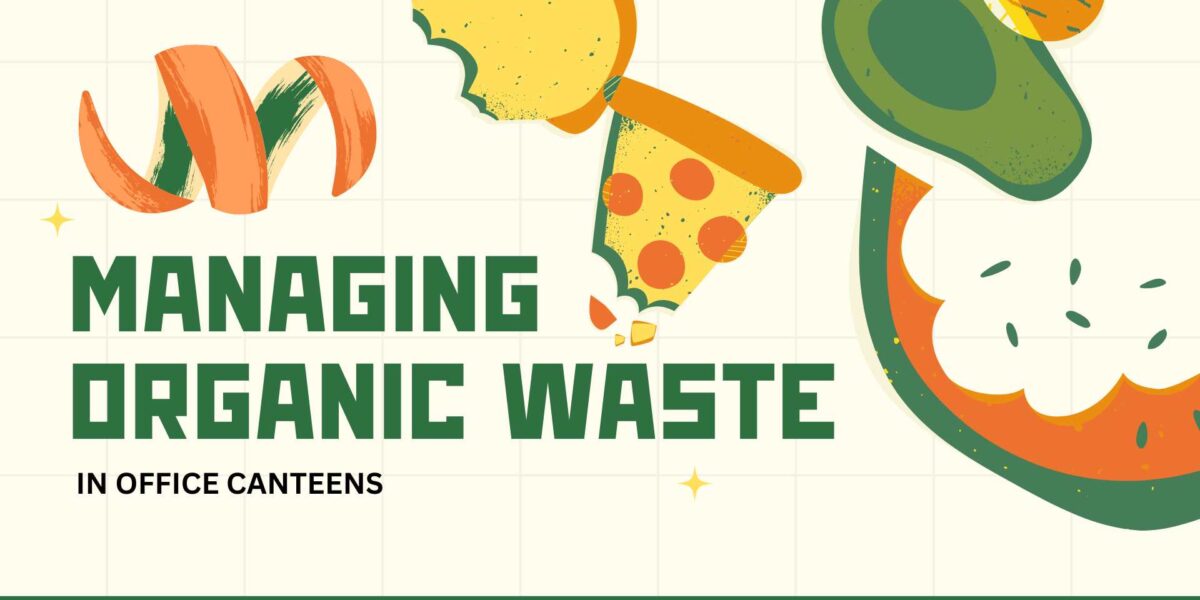In today’s eco-conscious world, managing organic food waste in office canteens is more important than ever. Not only does food waste contribute to the growing landfill crisis, but it also generates harmful greenhouse gases, making it a significant environmental concern. For companies committed to sustainability, addressing food waste management in their office canteens is a crucial step toward achieving a greener workplace.
Introduction
At Clean Geosphere, we believe in the importance of reducing food waste at its source and ensuring that what is generated is disposed of responsibly. In this blog, we’ll explore the growing problem of food waste in office canteens, the impact it has on the environment, and best practices for its safe and sustainable disposal.
The Growing Problem of Organic Food Waste in MThe Scale of Organic Food Waste in Office Canteens
Office canteens serve hundreds, if not thousands, of employees daily, providing breakfast, lunch, and snacks. With such high volumes of food being prepared, it’s no surprise that food waste can quickly accumulate. Leftover food, spoiled ingredients, and kitchen scraps make up a large portion of this waste, all of which are classified as organic waste. Unfortunately, a significant amount of this waste ends up in landfills, where it decomposes and releases methane—a potent greenhouse gas.
According to the Food and Agriculture Organization (FAO), nearly 1.3 billion tons of food is wasted globally each year, with office canteens contributing significantly. For businesses aiming to enhance their corporate social responsibility (CSR) and reduce their carbon footprint, managing this waste effectively is not just an option but a necessity.

Why Proper Disposal of Organic Food Waste Matters
The improper disposal of organic food waste can have several negative effects:
- Environmental Impact: As organic waste decomposes in landfills, it releases methane, contributing to global warming. Methane is over 25 times more potent than carbon dioxide in trapping heat in the atmosphere.
- Health Risks: Improperly managed food waste can attract pests such as rats and flies, leading to health hazards in and around office premises.
- Legal and Regulatory Concerns: Many countries, including India, have specific regulations regarding the disposal of organic waste. Failing to comply with these can result in fines or penalties.
By implementing sustainable practices, businesses can not only mitigate these risks but also enhance their reputation as environmentally responsible entities.
Best Practices for Organic Food Waste Disposal
Managing food waste in office canteens doesn’t have to be complicated. By following these best practices, offices can significantly reduce the amount of food waste generated and ensure that any waste produced is disposed of responsibly.
1. Source Segregation
The first and most critical step in managing organic food waste is source segregation. Offices should ensure that canteen waste is segregated into different categories: organic, recyclable, and non-recyclable. Providing separate bins for food waste, plastics, and other materials can help ensure that organic waste is kept separate from other types of waste, making it easier to dispose of correctly.
2. Composting
Composting is one of the most effective ways to handle organic food waste. By composting leftover food scraps and kitchen waste, offices can turn what would otherwise be waste into valuable nutrient-rich compost that can be used for landscaping or given to employees for home use. Partnering with a waste management company like Clean Geosphere, which offers composting solutions, can ensure the process is carried out efficiently.
3. Anaerobic Digestion
For larger offices generating substantial amounts of organic waste, anaerobic digestion is an excellent option. This process breaks down organic matter in the absence of oxygen, producing biogas (which can be used as an energy source) and digestate (a nutrient-rich fertilizer). Although Clean Geosphere does not currently employ anaerobic digestion techniques, it is a promising solution for future food waste management systems.
4. Donation of Excess Food
One way to reduce food waste is to prevent it from occurring in the first place. Many office canteens prepare more food than is consumed daily. Partnering with local food banks or charities to donate leftover food can help reduce waste while benefiting those in need.
5. Regular Waste Audits
Regular waste audits can help offices identify the types and quantities of waste they are generating. By understanding how much food waste is being produced, companies can make informed decisions on how to reduce it. Clean Geosphere offers comprehensive waste audit services, helping businesses streamline their waste management processes.
The Role of Clean Geosphere in Organic Waste Management
At Clean Geosphere, our mission is to help businesses achieve sustainable waste management solutions. We offer comprehensive services tailored to offices and corporate buildings, including daily waste pickups, 24/7 customer service, and the provision of waste disposal certificates and segregation reports for compliance. By partnering with us, offices can be assured that their food waste is managed in an eco-friendly and legally compliant manner.

Conclusion
Organic food waste generation in office canteens is a significant environmental challenge, but with the right strategies in place, businesses can drastically reduce their impact. Implementing practices like source segregation, composting, and donating excess food can go a long way in managing food waste effectively. Clean Geosphere is proud to partner with businesses committed to sustainability, helping them manage their waste responsibly while contributing to a greener future.
Let’s work together to reduce food waste, protect the environment, and make office canteens more sustainable.


